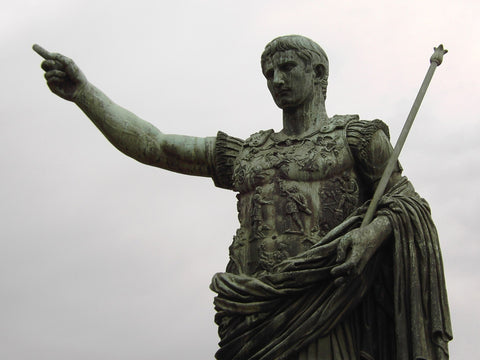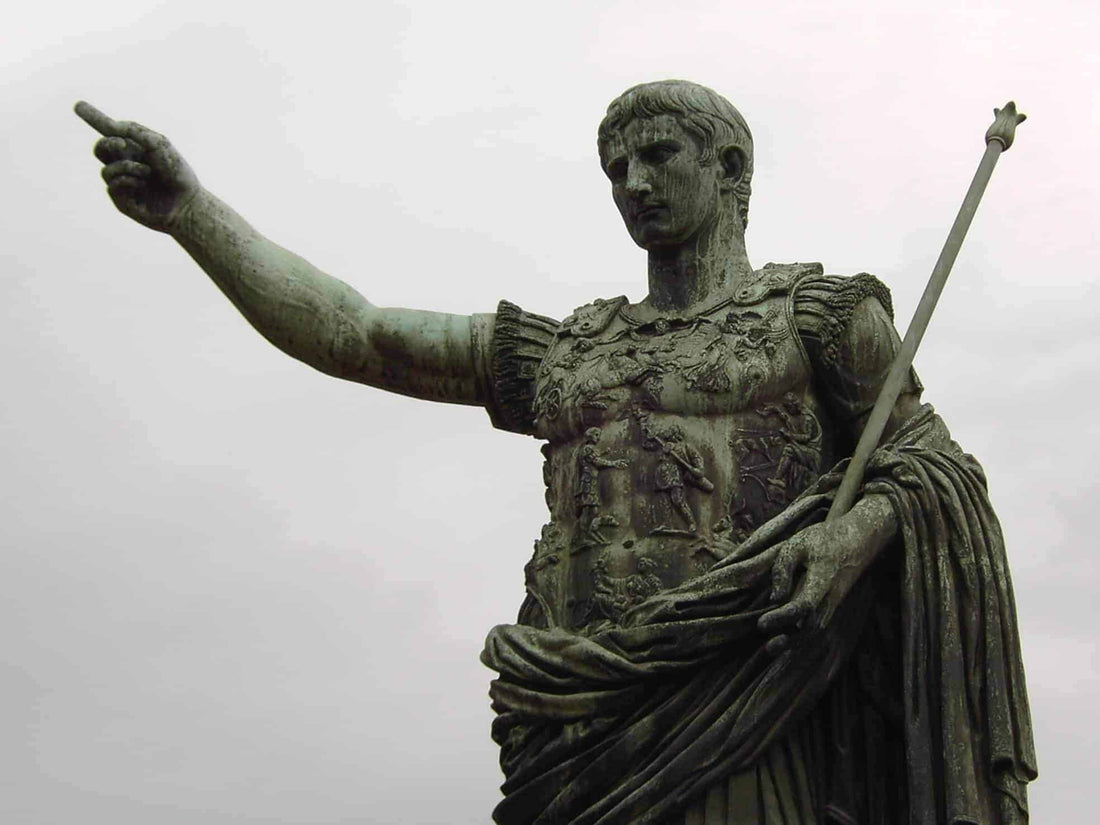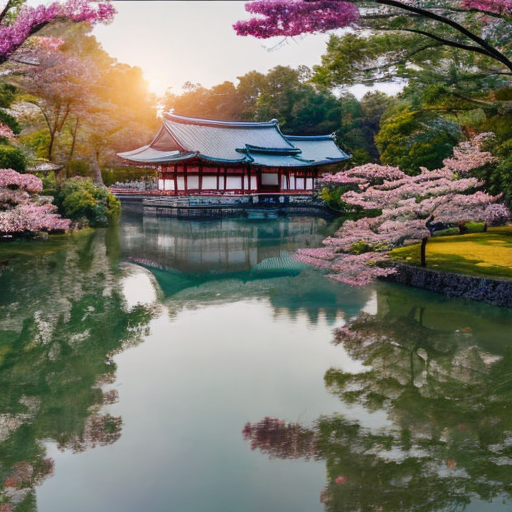
What made the Roman Empire so powerful? Was it the Roman Emperors, Roman Army, Roman Architecture, or Roman Law?
The main reason for Rome's power was the growth in manpower by assimilating other city-states. This increased the taxes which funded the strong Roman Army and many architectural masterpieces to became one of the greatest empires in Ancient Time.
There was a time when Rome was a small kingdom when no one thought it can rise to power. Rome also faced many tribes and other factions around it. This hid the fact that Rome was very successful at assimilating other city-states. The Roman Empire had huge amounts of manpower and was very able to get taxes from those other people that were willing to pay the taxes to generate huge amounts of revenue.
Unlike most other kingdoms of the time, Rome got troops from the entire population. They only didn't get the troops from the "Capile censi" who didn't have enough equipment and other fighting tools to be of any help.
Was the Roman Empire so powerful?
Rome lost to the Pyrrhus, the Mithridates, and in the Hannibal wars. While you think Rome is powerful, they also lost a significant number of battles.
However, at its peak, the Romans formed one of the empires that controlled the largest part of Europe and the Mediterranean. The empire was one of the most successful with an effective Roman Army and beautiful Roman architectures.
What factors made the Roman empire so powerful?
There are several factors that made this empire more successful.
Immigrants Embracing Roman Values
The Latin language, Latin literature, basic Roman values such as honor and obedience, Roman architecture and urban planning, Roman law, and, above all, the Roman army, all endured. The immigrants changed Rome but Rome changed the immigrants in turn.
The Roman Empire over the centuries welcomed new and different people, recognizing that greater strength culturally, economically, militarily lay with a growing populace that brought ideas, influence, and brawn. The newcomers were indeed Romans and were expected to adhere to the empire's founding principles. (history.com)
Resilience and grit
The Roman Empire didn't know how to lose in the long term. This is the main reason why they won most of the battles in the long run.
If you are a historian, then you can agree with me that the Romans lost the Caane battle against the Hannibal. Scipio eventually defeated Hannibal at the Battle of Zama in 202 BC having previously driven Hannibal's brother Hasdrubal out of the Iberian Peninsula.
Hannibal had 36,000 infantry to Scipio's 29,000. One-third of Hannibal's army were citizen soldier and the Romans had 6,100 cavalry to Carthage's 4,000, as most of the Numidian cavalry that Hannibal had employed with great success in Italy had defected to the Romans.
They Were Brilliant Overall
The other reason why Romans were very successful is that they were very brilliant at engineering infrastructure, welfare, trade, and every other aspect of the business. Roman was once a republic and became an empire because they knew how to plan the tactics.
Roman architecture and engineering innovations have had a lasting impact on the modern world. Roman aqueducts, first developed in 312 B.C., enabled the rise of cities by transporting water to urban areas, improving public health and sanitation.
Some Roman aqueducts transported water up to 60 miles from its source and the Fountain of Trevi in Rome still relies on an updated version of an original Roman aqueduct.
Roman roads, the most advanced roads in the ancient world, enabled the Roman Empire which was over 1.7 million square miles at the pinnacle of its power to stay connected. They included such modern-seeming innovations as mile markers and drainage. Over 50,000 miles of road were built by 200 B.C. and several are still in use today. (history.com)
Pride
I bet you may not know that Romans were proud of their land and always wanted to defend it no matter what. This is another reason why they always wanted to make sure they have all it takes to defend their motherland. They were very ready to defend their country even if it meant being killed.
Looks at the battle in the Teutoburg forest where they had to lose a battle to the Germanic Tribes but they didn't give up. The garrison under Roman's Lucius Caedicius, accompanied by survivors of Teutoburg Forest, broke through the siege and reached the Rhine. They resisted long enough for Lucius Nonius Asprenas to organize the Roman defense on the Rhine with two legions and Tiberius to arrive with a new army, preventing Arminius of the Germanic Tribes from crossing the Rhine and invading Gaul.
Openness
Romans were very open and that's why they were to let in new citizens and eventually combine efforts to defeat their opponents. It's a reason and that's why they won most of the battles.
Caesar made himself dictator and absolute ruler of Rome and its territories. During his rule, he enacted several reforms. Caesar founded many colonies in newly conquered territories and provided land and opportunity for poor Romans who chose to migrate there.
He reduced the number of slaves and opened citizenship up to people living in the provinces. Finally, he created a new calendar named the Julian calendar. This very calendar, with a few minor adjustments, is the same one used around the world today. (ushistory.org)
Accountability
The land had some of the most accountable senators, tribunes, and emperors and that is what made them get the trust from her people. Most of the people knew the importance of institutions and traditions and hence they were very loyal to their politicians.
The reign of Nerva (96-98), who was selected by the Senate to succeed Domitian, began another golden age in Roman history, during which four emperors Trajan, Hadrian, Antoninus Pius, and Marcus Aurelius took the throne peacefully, succeeding one another by adoption, as opposed to hereditary succession.
Trajan (98-117) expanded Rome's borders to the greatest extent in history with victories over the kingdoms of Dacia (now northwestern Romania) and Parthia. His successor Hadrian (117-138) solidified the empire's frontiers (famously building Hadrian's Wall in present-day England) and continued his predecessor's work of establishing internal stability and instituting administrative reforms. (history.com)
Reliability
Rome was very reliable to her friends and that's what made them get the right help whenever they needed any assistance from her friends. They had to keep very close assistance whenever their friends needed any help. In return, they received the same favor.
Ruthlessness
Rome wasn't very friendly to anybody that didn't mean anything good to her people. They were very ruthless and most of the time made them pay off without any mercy.
By 29 B.C., Octavian was the sole leader of Rome and all its provinces. To avoid meeting Caesar's fate, he made sure to make his position as absolute ruler acceptable to the public by apparently restoring the political institutions of the Roman republic while in reality retaining all real power for himself. In 27 B.C., Octavian assumed the title of Augustus, becoming the first emperor of Rome. (history.com)
Why is the Roman Empire the best?
There are very many reasons why the Roman empire was the best. The success of this empire is related to military and administrative efficiency. The success is closely related to Augustus who was the first Roman emperor. He was very strong and bold that he faced all the problems and challenges with boldness.
The main reason why this Empire was the best is that she defended her citizens with her highly trained and disciplined army. That's the reason why her army was the best in the world. The main determinant is that it was organized into divisions of soldiers depending on their social status.
How did Rome grow from a single city to an Empire?
The city grew from a single city to an empire because of the leaders and the army associated. They had a group of politicians that wanted to make sure the people were protected and at the same time have all the resources along the way. Her army was organized into divisions and was very disciplined. Her first emperor Augustus was at the core of all the developments and successes. He was determined to win all the battles and protect his people.




